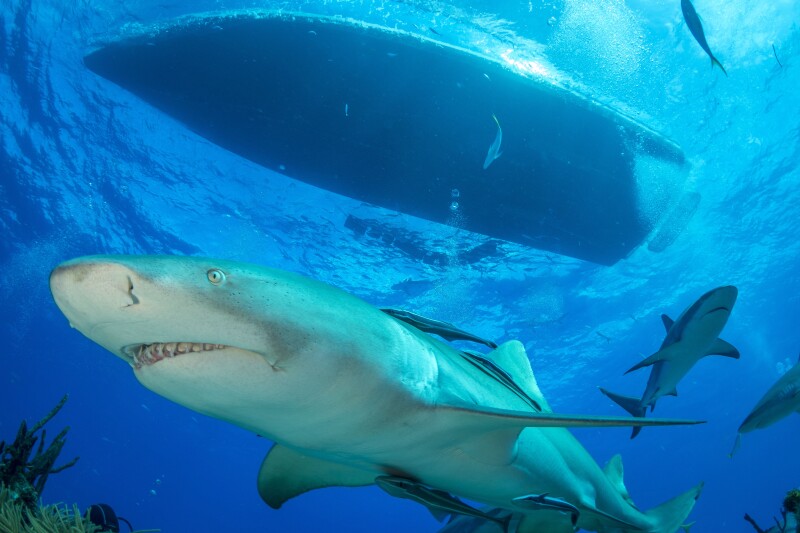Over the years, scientists have studied sharks and their habits. The popularity of learning about them has grown significantly thanks to the annual broadcast of Shark Week on Discovery Channel, which airs July 7, 2024. Multiple sources have proven that the species has learned to associate boat engines with food. According to Live Science, sharks have been feasting on fish caught by humans in the Gulf of Mexico.
Instances of shark depredation in the region have substantially increased over the past decade, according to a shark scientist at Mississippi State University, Marcus Drymon. “Although difficult to demonstrate empirically, it does appear that there is a shift in behavior,” he told the publication.
Shark depredation occurs when a shark partially or entirely eats or damages hooked or netted fish before fishermen can remove them from the water. Researchers have investigated the reasons behind the increase in depredation, finding that more sharks, more anglers, and learned behavior are the leading factors.
In another show called “Sharkfest” on National Geographic, researchers in the Gulf investigate the impact of the growing conflict between fishermen and sharks. In the show, marine biologist Jasmin Graham said, “We’re fishing in the same spot that the sharks are fishing in.”
“Sharks learn really, really quickly. They learn that an engine means food. So, they start coming straight for the boats. Now we’re directly competing with them for the same fish, and that’s when you get depredation.”
Depredation is particularly prevalent in the U.S. and Australia, where humans and sharks overlap. The popularity of recreational fishing has also increased over the years, leading more sharks to come closer to boats in hopes of feasting on already-caught fish.
According to a December 2023 report from the South Atlantic Fishery Management Council, shark behavior has changed off Southeastern states, with more sharks circling and lurking near boats. Responding to this, commercial and recreational fishermen have begun operating further offshore to prevent their catch from being eaten and their gear from being damaged by sharks.
NOAA Fisheries is assessing bull and sandbar sharks, the two leading species involved in depredation. They have also been investigating ways to protect fishermen’s catch through shark deterrent technology.
“They’ve got to eat; we’ve got to eat,” Graham said. “We’ve got to figure out how we both eat.”







